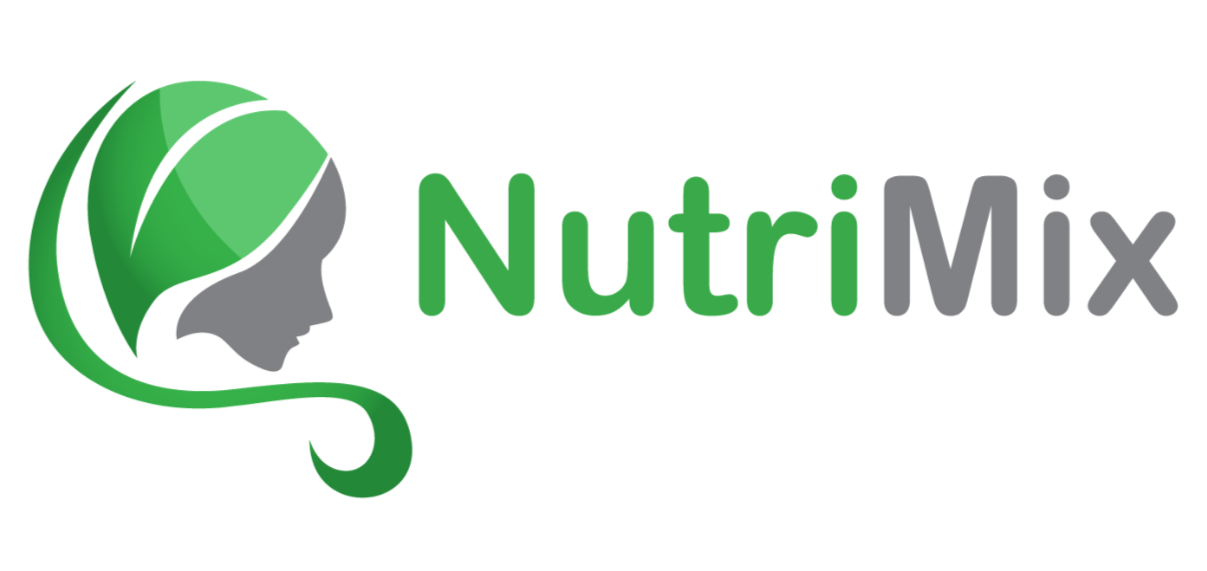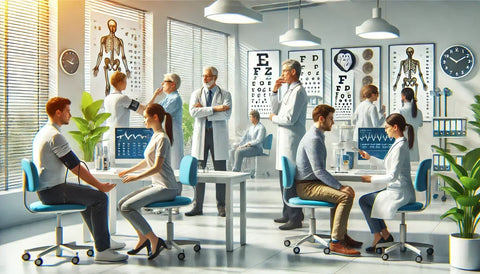Taking care of your health isn’t just about eating right and staying active—it’s also about staying ahead of potential health risks. Regular health screenings are crucial for detecting conditions early, allowing for timely intervention and better health outcomes. These screenings serve as a roadmap to understanding your body and preventing serious illnesses before they start.
In this guide, we’ll explore why health screenings are essential, which ones you should prioritize based on age and gender, and how to seamlessly incorporate them into your wellness routine.
Why Are Health Screenings Important?
Many serious health conditions, such as heart disease, diabetes, and certain types of cancer, develop silently, without obvious symptoms. By the time symptoms appear, the disease may have progressed, making treatment more challenging.
Key Benefits of Regular Screenings:
✅ Early Detection Saves Lives: Catching diseases like cancer, diabetes, or hypertension in their early stages allows for more effective treatment and higher survival rates.
✅ Prevention is Cheaper Than Treatment: Managing a chronic illness can be costly, but preventive care and early intervention reduce long-term healthcare expenses.
✅ Better Quality of Life: Knowing your health risks allows you to make informed lifestyle changes, leading to a healthier and more fulfilling life.
✅ Peace of Mind: Regular check-ups provide reassurance and motivation to maintain good health habits.
Essential Health Screenings By Age and Gender
Health screenings vary based on personal and family medical history, age, lifestyle, and gender. Below are the general recommendations for common health tests and check-ups.
For Everyone
📌 Blood Pressure Check (At Least Every 2 Years, Annually If High)
- High blood pressure (hypertension) is a leading cause of stroke, heart disease, and kidney failure.
📌 Cholesterol Test (Every 4-6 Years, More Frequently If At Risk)
- High cholesterol increases heart disease risk. A simple blood test checks LDL (bad cholesterol), HDL (good cholesterol), and triglycerides.
📌 Blood Sugar (Glucose) Test (Every 3 Years After 45, Earlier If Overweight or At Risk)
- Helps diagnose diabetes or prediabetes early, allowing for lifestyle adjustments to prevent progression.
📌 BMI & Obesity Screening (Annually)
- Excess weight increases the risk of various chronic conditions, including diabetes, heart disease, and arthritis.
📌 Dental Exams & Cleaning (Every 6 Months – 1 Year)
- Poor oral hygiene has been linked to heart disease, diabetes, and even dementia.
📌 Vision Tests (Every 1-2 Years, More Frequently If You Have Vision Issues)
- Regular eye exams can detect conditions like glaucoma, cataracts, and vision loss due to diabetes.
For Women
📌 Pap Smear & HPV Test (Every 3-5 Years for Ages 21-65)
- Detects early signs of cervical cancer, one of the most preventable types of cancer.
📌 Mammogram (Every 1-2 Years After Age 40-50, Earlier If at High Risk)
- Essential for detecting breast cancer early. Self-exams are also recommended monthly.
📌 Bone Density Test (Starting at Age 65, Earlier If at Risk for Osteoporosis)
- Helps assess bone health and prevent fractures.
📌 Reproductive Health Exams (Annually or as Recommended by Your Doctor)
- Includes ovarian and uterine health assessments.
For Men
📌 Prostate Cancer Screening (Starting at Age 50, or Earlier If at High Risk)
- A PSA blood test helps detect early signs of prostate cancer.
📌 Testicular Exams (Self-exams Monthly, Doctor Exam as Needed)
- Testicular cancer is most common in younger men (ages 15-35), making self-checks crucial.
📌 Abdominal Aortic Aneurysm Screening (Once Between Ages 65-75 for Smokers)
- Detects potential weakening of the abdominal artery, which can be life-threatening.
Additional Screenings for Everyone (Based on Risk Factors)
📌 Colonoscopy (Starting at Age 45, Every 10 Years, or Earlier If at Risk)
- Prevents colorectal cancer by detecting polyps early.
📌 Lung Cancer Screening (For Smokers and Former Smokers Over 50, Annually)
- A low-dose CT scan can help detect lung cancer early.
📌 Thyroid Function Test (As Needed Based on Symptoms or Family History)
- Checks for thyroid disorders, which can affect metabolism, energy, and overall health.
📌 Hearing Tests (Every 3-5 Years After Age 50, or Sooner If You Notice Hearing Issues)
- Identifies early hearing loss, which can impact brain function.
How to Make Health Screenings a Habit
Even though health screenings are essential, many people delay them due to busy schedules, fear, or lack of knowledge. Here’s how you can stay on top of your preventive care:
1. Set Up a Routine Check-Up Plan
- Schedule your annual physical at the same time each year to make it a habit.
- Use your birthday month as a reminder to book important tests.
2. Track Your Health Records Digitally
- Use health apps or online patient portals to keep track of test results and upcoming screenings.
3. Take Advantage of Workplace & Insurance Benefits
- Many workplaces offer free annual check-ups or health assessments.
- Insurance plans often cover preventive screenings—take advantage of them.
4. Combine Screenings with Other Wellness Goals
- Pair an annual physical check-up with new fitness resolutions.
- Make dental exams part of a broader self-care routine.
5. Stay Informed and Ask Questions
- Consult your doctor to customize screenings based on your health history.
- If a test result is unclear, ask for clarification or a second opinion.
What Happens After a Health Screening?
Receiving test results can sometimes be nerve-wracking, but understanding what to do next is crucial.
✅ If your results are normal: Continue following healthy habits and attend future screenings as scheduled.
✅ If your results are borderline: Consider making diet and lifestyle changes before the issue worsens.
✅ If your results indicate a concern: Work with your doctor to create a personalized treatment or monitoring plan.
Final Thoughts: Take Control of Your Health Today
Regular health screenings aren’t just about detecting diseases—they’re about empowering yourself with knowledge to lead a longer, healthier life. Taking action today can prevent potential health issues in the future and improve overall well-being.
Don’t wait for symptoms to appear—schedule your next health check-up today! Your future self will thank you.
What’s Next?
If you found this guide helpful, check out other wellness resources:
📌 Decoding Wellness Trends: What Really Works?
📌 5 Nutrition Myths That Are Holding You Back
📌 How to Break Bad Habits and Build New Healthy Ones



